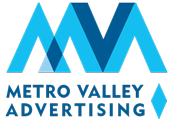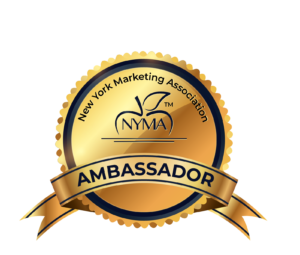Personal injury attorneys face a tough battle. The market is crowded with competitors. Many firms make similar claims, and your potential clients can’t tell them apart. Smart firms help prospects make decisions by building trust through media.
Trust matters more for attorneys than most other businesses. Why? People hire personal injury lawyers when they are under duress. They need someone they can rely on. But for many, attorneys are intimidating.
If your firm is perceived as trustworthy, your chance of retaining a client skyrockets. Your media and messaging choices directly impact your trustworthiness. There are some clear strategies to convey trustworthiness and establish authority. These strategies will improve your lead generation efforts.
Understanding Trust in Personal Injury Marketing
The psychology behind legal trust is simple. Clients want safety. They have been injured and are possibly out of work, facing large medical bills. Injured prospects don’t have time to research every attorney in town. They seek expertise. Prospects need to believe you can help them. Often times who they choose is a gut decision.
Before calling, potential clients look for proof. They want to see results. People check your reputation. They study your experience.
Trust and authority are different but connected. Trust means clients believe what you say. Authority means they respect your expertise. You need both to win.
Most new attorneys face a “trust deficit.” People don’t know you yet. Therefore, your marketing must work harder to build confidence.
Consistency: The Foundation of Trust-Building
Inconsistent messaging destroys credibility fast. Your firm must speak with one clear voice. This builds recognition over time.
Create a brand voice that stays the same everywhere. Use similar colors, fonts, and language. This helps people remember you.
Different platforms need different approaches. However, your core message must stay the same. This balance is critical.
Testimonials: Real Stories Build Real Trust
Client testimonials work better than self-promotion. People trust other people like themselves more than they trust you. It is human nature. Hearing how you helped others in a similar situation creates belief.
To collect powerful testimonials, ask specific questions. “How did we help you?” works better than “Were you satisfied?” Present settlement payments in a dedicated space in your office. Film the presentation and continue with questions to draw powerful responses such as “What was your biggest concern before hiring us” or “What would you tell someone who is concerned about hiring an attorney”? You can shoot the video on an iPhone or inexpensive camera. Put it on a tripod and invest in a couple of wireless lavalier mics.
Video testimonials create stronger connections. Written testimonials work well for websites. Use both when possible.
Always be aware of legal restrictions. Get written permission to use testimonials. And don’t promise specific results based on past cases.
Keep testimonials real. Edit as little as possible. Real people don’t sound perfect. Authenticity matters most.
Case Studies: Showing Your Process and Results
Turn case results into compelling stories. Testimonials tell prospects what happened while case studies demonstrate how. When writing a case study, focus on the client’s journey. Show how you helped them overcome challenges. Include the problem, your approach, and the outcome. Focus on what matters to future clients.
Case studies show that you are not lucky, just strategic. You know how to deliver for your clients. You are the expert.
Never overpromise based on past results. Each case is different. Make this clear in your marketing.
Media Channels and Trust: What Works Where
Every medium works in its own way and needs to be used thoughtfully.
TV remains powerful for personal injury marketing. TV still seems larger-than-life. It builds trust through visual storytelling. It shows the real people behind your firm.
Radio creates personal connection through voice. Lawyers at the firm should read the spots. The human element comes through clearly. This builds familiarity.
Digital display ads build recognition through repetition. People trust what they recognize. Digital is a great way to build consistency.
Social media requires authenticity. Overly polished content often falls flat. Real moments and helpful information work better.
Search marketing puts you there when trust matters most. People searching for help are ready to decide. Be there when they look.
Outdoor advertising shows permanence. It suggests your firm is established. Outdoor also feels local, like you are part of the community. This builds confidence.
The Client Journey and Media Touchpoints
The Awareness stage needs trust signals. First people need to know you can solve their problem. Introduce your firm’s values. Make a good first impression. Billboards, digital ads and TV work well at this stage.
During the Engagement phase, education builds authority and trust. Engagement is the research step in the process. Provide helpful information. Answer common questions, think FAQ’s. Be empathetic and show that you understand their problems. You want to demonstrate that you are a real person. A website or landing page is your strongest tool here. Don’t be afraid to direct prospects to a YouTube channel.
During the Engagement/Research period leverage online video. It is a powerful tool that has many uses. Explainer videos answer questions, show your knowledge, and express empathy, all of which move the needle. Make sure to cover all of the practice areas in which you specialize. Make a video to introduce yourself and your firm and explain processes. And of course, film testimonial videos.
At the Conversion phase, remove final doubts. Offer free consultations. Share testimonials. Make contacting you easy and risk-free. Lean into retargeting, search and TV. Have a strong call to action.
After hiring, reinforce their decision. Keep communication clear and consistent. This turns clients into referral sources.
Budget Allocation for Maximum Trust
With limited resources, focus on consistency first. It’s better to do one channel well than many poorly.
High-impact, low-cost trust builders include Google Business Profile. Client reviews cost nothing but time. Educational content builds authority cheaply.
Some investments pay off slowly. Brand building takes time. However, the results last longer than quick promotions.
The best approach combines long-term and short-term tactics. Balance immediate lead generation with trust building.
Conclusion – Building Trust Through Media
Trust-building in personal injury marketing creates lasting value. Quick lead generation tactics might work short-term. Trust works forever.
Start small but think big. Begin with one channel. Do it well. Then expand carefully while maintaining consistency.
Your next step? Audit your current marketing. Look for trust signals. Are they strong enough? Are they consistent? Make improvements where needed. Invest time into building trust through media. The firms that build the most trust generate the most leads. In the end, people hire attorneys they trust. Make sure that’s you.



